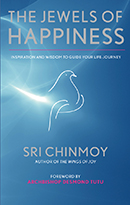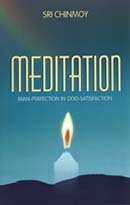Every day there is only
One thing to learn:
How to be honestly happy.

A true sense of inner peace
My name is Paramartha Gallienne, and I have been a member of the Sri Chinmoy Centre in Auckland, New Zealand for the past 14 years. I live outside Auckland on 2.5 acres where it is possible to grow my own fruit and vegetables. I have a passion for the outdoors and love landscaping. I am currently working in an administrative role at the National Hospital. I enjoy international travel and remote places steeped in his history and culture.
What is your definition of happiness?
My definition of happiness would be a true sense of inner peace and personal freedom. Happiness means to me space and silence and the opportunity to read something of a spiritual nature. This usually takes me to a rugged coastal beach with the waves crushing relentlessly where I can just gaze out to sea. Where time is of no consequence and the list of chores are miles away. Happiness to me is feeling a sense of real love for the world and those who share life here.
When do you feel truly happy?
When I feel I have accomplished something – this might be a marathon, or seeing a rose appear from nowhere. I feel a sense of inner joy and happiness when I notice something no one else might that moment. Something I claim as my very own out of the blue. It doesn’t have to be a big thing, something significant to me, like having lunch with a Monarch Butterfly the other day as he swooped around me for 10 mins and flew off.
When you feel unhappy, what do you do to make yourself feel better?
When I feel unhappy it can be a real challenge to find happiness. At times, all I have done it focus on being unhappy and that goes round and round. So what I do now is find “just one thing that I claim as my own”. There are so many examples of this as I play a game each day at finding something during my day that is mine. Meditating on the moon brings joy and happiness and if that is not possible, I stop and listen for a special bird singing maybe way up in the sky. I love the graceful flow of a hawk searching for dinner as he glides through the atmosphere just taking the wind currents as they come. Watching a hawk gliding makes me take stock of how unimportant all the worries in life are and how life is much like the wind currents just flowing up and down. It is all about choices and attitudes so if the hawk wants to go abit faster, he just flaps his wings a little just like we can in life. We can chose to see the good and we can chose to feel the happiness life offers, it is all about looking for those moments.
What people have inspired you in your search for happiness?
There are several historical figures that come to mind but one significant one would be Sri Chinmoy. Just having the opportunity to look at him in a meditative state brings a sense of wonder. He is a true example of someone who is non-judgemental, someone who projects such patience and love for mankind. He has taught me tolerance and how important it is to just keep going. He has given me strength when things get tough to have faith in God’s plan.
How would you go about making the world a happier place?
By encouraging everyone to have a oneness heart – starting with myself! If we all do our little bit in sharing and offering each other oneness that is recognised by another person and soon rubs off to the next person. It doesn’t take much to remember each day to find ways in offering oneness to an individual or a group and when you see their faces, it certainly makes your day. I have practised being more considerate on the roads, letting people in, smiling & thanking those who let me in the traffic queue. It all adds up in offering oneness through the day.
What inspires you about the future?
What inspires me about the future is the opportunity to see the personal growth and changes we are all making towards happiness and inner peace. There is no going back, only development and growth towards recognising that we all want and need happiness. So for future generations to have the opportunity to change the mind set towards happiness will certainly create a world of oneness.
What personal qualities I feel are important in obtaining happiness?
A calm sense of patience – everything now is hard and fast but if we can find moments of silence, simplicity and oneness then I feel each one of us has a chance to feel happiness. If we have a simplistic lifestyle we very often don’t hunger for a lot of noise and this enables us to be more receptive inwardly. So qualities such as patience, oneness, love and understanding for each other all go a long way in supporting a future of happiness.
Your most important life decision in terms of your own personal happiness?
To finally find a resting place in my life of meditation. I spent years searching for something bigger and deeper than the books I use to read offering a beginning and end but with my life now being a member of the Sri Chinmoy Centre, there isn’t a moment that I feel I have outgrown what I am reading or doing. Being a member of the centre offers a social network where I can mix with those of like mind and lifestyle. It offers guidance with lifestyle choices and the international opportunities are endless. As I live on my own, I don’t find the lifestyle lonely as there is as much or as little to do. I am grateful for being part of an international playing field where there are sports activities, meals to enjoy together and much more.

International Day of Happiness 2014 – events around the world
To mark the second international Day of Happiness, numerous events are taking place around the globe. We will be adding more events as we find them!

A series of stamps issued by the UN to mark International Day of Happiness – 2 each from UN headquarters in New York, Geneva and Vienna
Dublin, Ireland
A novel exhibition called Sharing Happiness will run from 18-21 March in Dublin Civic Offices – featuring art, poetry, video presentations and more! The centrepiece of the programme will be an evening of events on March 20, 6 – 7.30pm Among the video events will be a screening of the ‘Happy’ documentary – see below!

Can happiness be taught?
In many different polls asking people what they want from life, the most frequent answer seems to be “to be happy” ((see, for example, Snyder, 2010)) . However, this priority is not reflected in the current education we are giving to our children.
Prominent positive psychologist Martin Seligman was surprised at the discrepancy in the answers he received when he gave a quiz to thousands of parents with two simple questions ((Seligman writes about this in Flourish: A Visionary New Understanding of Happiness and Well-Being)) : 1) in one or two words, what do you most want for your children? and 2) in one or two words, what do schools teach?
In the first question, the answers were like “Happiness,” “Confidence,” “Contentment,” “Fulfillment,” “Balance,” and the like – answers that all fall under the general realm of well-being. However the second question gave answers like “Achievement,” “Thinking skills,” “Success,” “Conformity,” “Literacy,” “Math,” – all things oriented to succeeding in the workplace. What struck him – and me – was how little overlap between the two lists there were! But there is no reason why schools can’t aim towards teaching both at the same time – after all, personal well being has a well-documented positive effect on performance at work ((e.g Baldassare, Rosenfeld, & Rook, 1984)) .
But what if my idea of happiness is different to what’s being taught?
The notion of happiness education naturally raises fears about some kind of uniform approach to happiness being taught in schools that will override the huge variety of cultural, spiritual or other convictions that different people hold. However there is a wide consensus that there is no one size fits all definition for happiness – indeed, personal perceptions of what constitutes well-being can vary even within small groups of people ((Craig, 2009)) .
It seems that the key to happiness education in schools is not to fixate upon a particular definition of wellbeing, but rather develop a set of skills to help maintain a person’s well-being in the face of the many problems and pressures that children (and adults) face in daily life. It helps that there is an increasing body of research evidence for the health and emotional benefits of simple practises like stilling the mind, and practising conscious gratitude ((e.g Emmons and McCullough 2003, Seligman et al. 2005)) – many of which have been around in some form or another for thousands of years.
So how are happiness tools in education proceeding right now?
This is an area I am very interested in – but right from the start I will admit I don’t have a complete picture, which of course varies from region to region around the world. However looking at one story from my own country of Ireland, I think it does make for interesting reading.
For many years, any kind of happiness education in schools was limited to some alternative schools and individual approaches by educators. For example, one primary school teacher who attended some meditation courses which I taught with some friends on behalf of the Sri Chinmoy Centre, decided to set up some kind of practice for the students she was teaching. At the time she was teaching in an area where the average income was quite low relative to the rest of the country, and which had a good deal of tension between different cultural groups in the community. To start with, she originally set up a 10 minute practice in the morning – she would play some relaxing music, and do some exercises with stilling the mind by focusing on the breath. Of course, there is initially quite a bit of fidgeting by the children as they grew used to the practise, but within a couple of weeks it got to the stage where the children really values the practise, to the point of asking the teacher ‘where’s our quiet time’ if she forgot to start the day with it.
As months passed, she noticed a very tangible increase in ability to focus and stay still as well as an overall increase in harmony, not only in the class room but also when they went home to their families (this included children with troubled home situations). Indeed, some of her teaching colleagues were inspired to also include some ‘quiet time’ as part of their daily programme. (As a small aside – I visited that school in my capacity as one of the organisers of a worldwide peace relay called the Peace Run, and it seemed to me that in the whole school assembly her students seemed the easily the best behaved!)
However, now this teacher there is a more organised push for including some kind of schools, including conferences where she can learn more approaches to use in her classroom. In the year 2013 in Ireland alone, quite a few media articles have come out in the national press, interviewing a cross section of schools in middle class and working class areas and finding that they have a overwhelmingly positive experience with teaching meditation in schools (( e.g. the Irish Independent: http://www.independent.ie/lifestyle/education/mind-over-matter-in-the-classroom-as-pupils-enjoy-benefits-of-meditation-29645366.html and the Irish Examiner: http://www.irishexaminer.com/lifestyle/features/irish-students-are-loving-new-positive-ethos-244436.html )) . It seems that tools for wellbeing are still a little bit away from being added to the syllabus, but that the push for doing so is starting from the bottom up.

The many things people want from meditation
Often, people show up to the meditation classes I give with no real idea of what meditation actually is. Essentially, they are acting on a sense that it might help with whatever personal requirements they might be have at the time. However, those requirements vary widely from person to person – ranging from dealing with stress and health issues to pursuing more ‘spiritual’ goals – self-growth and self-discovery. So in the light of all these competing demands, what can we say about meditation’s ability to answer them?
The same practices apply to answer different needs
It turns out that many of the same kinds of meditation practices that have been used for spiritual purposes for generations also have significant health and stress relief benefits. For a look at the literature on the health benefits of meditation, my colleague Bhadra Kleinmann’s article The health benefits of meditation on this site makes for very informative reading. (Very often in the literature the word mindfulness is used instead of meditation.)
What you want is what you get
The intention with which you come to meditation with has a significant influence on what benefits you obtain from it (Shapiro, Carlson, Astin & Freedman, 2006). In other words, what you want from meditation influences what you get out of it – be it some momentary stress relief, or deeper insights into your own being.
…and sometimes what you want changes.
An early study suggests that for some people, their aim changes as they pursue their meditation practice further, from more health-related to more self-reflective or spiritual topics (Shapiro, 1992). This is something I have noticed myself when teaching introductory classes free of charge for the general public on behalf of the Sri Chinmoy Centre. As a meditation group, our own approach at is one of spiritual awareness and self-discovery – however, being aware that there are a lot of people at the class who don’t identify as being spiritual, I’ll start in the first class by first discussing the wide spectrum of reasons people look at meditation (like I do above). I’ll explain that later classes will focus more and more on the spiritual side of things, but at least from the first couple of classes those who are only interested in the health and stress benefits will still gain a lot of practical meditation techniques as well as valuable information on setting up their own practice which will be useful no matter what. Over the years, I have noticed that in each class there are always a few people who were self-declared non spiritual types, that stick around and become interested in the self-discovery and self-growth aspects of meditation.
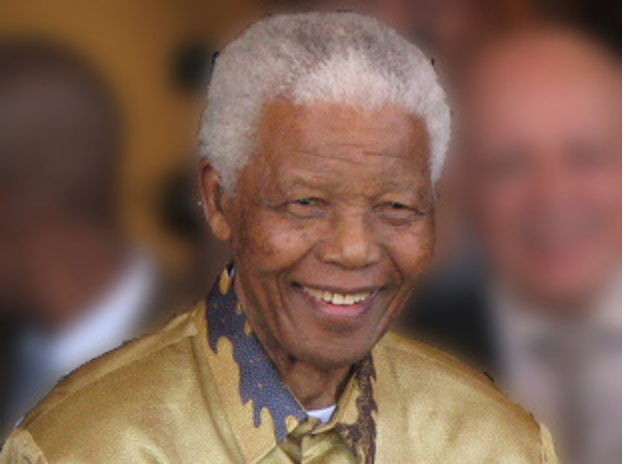
Childhood Wisdom from Nelson Mandela
The release of Long Walk to Freedom, the film based on Nelson Mandela’s autobiography, is no doubt causing many of us that bought the book twenty years ago to pick it up and re-immerse ourselves in the story of remarkable modern hero. Here are a few small stories and observations from the opening chapters in which the young Madiba relives his childhood, and in doing so gives us more than a few nuggets of traditional African wisdom we could do well to apply in our own lives:
Rewarded in ways we cannot know…
My mother would enchant us with Xhosa legends and fables that had come down from numberless generations….I recall one my mother told us about a traveller who was approached by an old woman with terrible cataracts on her eyes.The woman asked the traveller for help, and the man averted his eyes. Then another man came along and was approached by the old woman. She asked him to clean her eyes, and though he found the task unpleasant, he did as he was asked. Then, miraculously, the scales fell from the old woman’s eyes and she became young and beautiful. The man married her and became wealthy and prosperous. It is a simple tale, but its message is an enduring one; virtue and generosity will be rewarded in ways that one cannot know.
A cosmic wholeness
Madiba’s father was a counsellor to the rulers of the Thembu tribe, and his son was also expected to go down that road: My father was (also) an unofficial priest…he did not need to be ordained, for the traditional religion of the Xhosa is characterised by a cosmic wholeness, so that there is no difference between the sacred and the secular, between the natural and the supernatural.
Defeat without humiliation
I learned my lesson one day from an unruly donkey. We had been taking turns climbing up and down its back and when my chance came I jumped on and the donkey bolted into a nearby thorn bush.It bent its head, trying to unseat me, which it did,but not before the thorns had pricked me and scratched my face, embarrassing me in front of my friends. Like the people of the East, Africans have a highly developed sense of dignity, or what the Chinese call ‘face’. I had lost face among my friends. Even though it was a donkey that unseated me, I learned that to humiliate another person is to make him suffer an unnecessarily cruel fate. Even as a boy, I defeated my opponents without dishonouring them.
A lesson in leadership
After his father passed away, the young Madiba was sent to live with Jogintaba, the acting regent of the Thembu people, to be trained as a counsellor to the future chief. Here he describes how his leadership style was profoundly influenced by watching the regent and his course:
I watched and learned from the meetings that were regularly held at the Great Palace…Everyone who wanted to speak did so. It was democracy in its purest form… chief and subject, warrior and medicine man, shopkeeper and farmer, landowner and labourer…(the regent) was not above criticism, in fact, he was often the principal target of it. But no matter how serious the charge, the regent simply listened, not defending himself, showing no emotion at all.
The meetings would continue until some kind of consensus was reached. They ended in unanimity or not at all. Unanimity, however, might be an agreement to disagree, to wait for a more propitious time to propose a solution…only at the end of the meeting, as the sun was setting, would the regent speak. His purpose was to sum up what had been said and to form some consensus among the divergent opinions. But no conclusion was forced on people who disagreed. If no agreement could be reached, another meeting would be held.
As a leader, I have always followed the principles I first saw demonstrated at the Great Palace. I have always endeavoured to listen to what each and every person in a discussion had to say before venturing my own opinion. Oftentimes, my own opinion will simply represent a consensus of what I heard in the discussion. I always remember the regent’s axiom: a leader, he said, is like a shepherd. He stays behind the flock, letting most nimble go on ahead, whereupon the others follow, not realising that all along they are being directed from behind.
Long Walk to Freedom can be purchased on Amazon here…
The official website for the film is here…

The health benefits of meditation
I have had the good fortune to live, for nearly a quarter of a century, in a community of meditators. We live in a large city, in our own apartments, but we are not isolated; some 200 of us live within a two-mile radius of the Centre where we meditate together. My life has reaped many benefits from my frequent contacts with other meditators, but this is the subject for another day. My focus for today is more mundane — health, both physical and mental.
One of the first things that struck me when I moved into the neighborhood was the youthful appearance of many of my fellow meditators. I assumed, at first, that they were simply what they seemed – young. As I began to have conversations with my new neighbors, though, I discovered that a lot of them were a decade or two older than they looked.
In part, this can be chalked up to the philosophy of our spiritual Teacher, Sri Chinmoy. He spoke often about the importance of keeping our body, as the “temple” of our soul, in good condition. He requested that his students run or do equivalent exercise for at least half an hour every day in addition to their meditation practise. He founded the Sri Chinmoy Marathon Team, which, in each of the 25 or so countries in which there is a branch, to this day encourages people to participate in races, ranging from weekly two-mile races all the way to the incredible (but very real) 3,100-mile race, held in Queens, New York every summer.
What does the literature say?
Recently I began to wonder whether, in addition to the contribution of Sri Chinmoy’s unique emphasis on self-transcendence, meditation itself might make an important contribution to health. I decided to take a look at the scientific literature, and found that there are, indeed, a number of ways in which meditation has beneficial effects on both physical and mental health.
Regular meditation results in lowered blood pressure, according to a meta-analysis (a statistical technique that combines results from multiple studies) of nine randomized, controlled trials (one of the most powerful types of research design). ((Anderson, J.W., Liu C., Kryscio, R.J., Blood pressure response to Transcendental Meditation: A meta-analysis, American Journal of Hypertension, 2008, 12 (3), 310-316.)) Insomniacs will be interested to learn that there are quite a few studies showing that regular meditation leads to better sleep. ((Nagendra, R. P., Maruthai, N., & Kutty, B.M., Meditation and its regulatory role on sleep, Frontiers in Neurology, 18 April 2012, 3 (54). – This is a literature review of other studies on the subject. ))
Since the cold and flu season is starting in the Northern hemisphere, it is timely to learn that one study shows that regular meditators have fewer winter colds than others; and a second finds that meditators produce more antibodies in response to the flu vaccine than others. ((Barrett, B., Hayney, M.S., Muller, D. et al., Meditation or exercise for preventing acute respiratory infections: A randomized controlled trial, Annals of Family Medicine, 2012, 10 (4), 337-346.
Davidson, R.J., Kabat-Zinn, J., Schumacher, J. et al., Alterations in brain and immune function produced by mindfulness meditation, Psychosomatic Medicine, 2003, 65, 654-570.))
In line with my original observation of the youthful appearance of many of Sri Chinmoy’s students, there has even been some biomedical research showing that meditation may slow the rate of cellular ageing. ((
Epel, E., Daubenmier, J., Moskowitz, J.T. et al., Can meditation slow rate of cellular aging? Cognitive stress, mindfulness, and telomeres, Annals of the New York Academy of Sciences, 2009, 1172, 34-53.))
A fascinating piece of research used the MRI technique to examine the brains of 16 meditators and 17 non-meditators. ((Hölzel, B.K. et al., Differential engagement of anterior cingulate and adjacent medical frontal cortex in adept meditators and non-meditators, Neuroscience Letters, 2007, 421: 16-21.)) This study, conducted jointly by the Massachusetts Institute of Technology in the U.S. and the Bender Institute of Neuroimaging in Germany, found that meditators, compared to non-meditators who had been matched on demographic characteristics, had increased gray matter in the left hippocampus, which controls learning, memory and emotional control. Although the study size is small, and it is possible that factors other than meditation are what really made the difference for the meditators, the findings are at least highly suggestive, and we can probably look forward to future attempts to explore them further.
Meditation and mental health
Let us now turn to the effects of meditation on mental health. I approach this area with some trepidation for several reasons. First of all, there are many definitions of mental health and I do not want to begin to get into that. Second, some would argue that spiritual progress and mental health are closely allied. But, third, we probably all know experienced meditators for whose mental health we would not want to vouch (of course, we didn’t know these people before they started to meditate). Nevertheless, I find that there is a large body of evidence showing that meditation has positive effects on several different aspects of mental health.
Regular meditation is related to having “positive emotions,” in other words, feeling good, happy or cheerful, according to at least two striking findings. One of these studies focused on feelings of well-being; the second, a randomized controlled study, measured changes in brain electrical activity before, immediately after, and then four months after an eight-week course in the practice of meditation, and found significant increases in left-sided anterior brain activation, a pattern previously associated with positive affect, among the meditators. ((Brown, K.W. & Ryan, R.M., The benefits of being present: Mindfulness and its role in psychological well-being, Journal of Personality and Social Psychology, 2003, 84( 4) 822-848.
Davidson, R.J., Kabat-Zinn, J., Schumacher, J. et al., Alterations in brain and immune function produced by mindfulness meditation, Psychosomatic Medicine, 2003, 65, 654-570.))
The reverse is also true: meditators feel less anxiety and depression than non-meditators. This is a particularly strong finding because it is supported by three different meta-analyses. ((Hofmann, S.G., Sawyer, A.T., Witt, A.A. & Oh, D., The effect of mindfulness-based therapy on anxiety and depression: A meta-analytic review. Journal of Consulting and Clinical Psychology, 2010, 78 (2), 169-183. Note that mindfulness-based therapy is not psychotherapy, but rather, an eight-week course teaching and practicing the basics of the mindfulness approach to meditation.
Chiesa, A. & Serretti, A., Mindfulness-based stress reduction for stress management in healthy people: A review and meta-analysis, Journal of alternative and complementary medicine, 2009, at (5), 593-600.
Vollestad, J., Nielsen, M.B. & Nielsen, G.H., Mindfulness and acceptance-based interventions for anxiety disorders: A systematic review and meta-analysis, British Journal of Clinical Psychology, 2012, 51 (3), 239-60. This meta-analysis included only studies of clinical samples of persons diagnosed with anxiety disorders.))
Meditators have also been shown by several studies to be more satisfied than others with their relationships. ((Wachs, K. & Cordova, J. V., Mindful relating: Exploring mindfulness and emotion repertoires in intimate relationships, Journal of Marital and Family Therapy, 2007, 33 (4), 464-481.
Barnes, S., Brown, K.W., Krusemark, E. et al., The role of mindfulness in romantic relationship satisfaction and responses to relationship stress, Journal of Marital and Family Therapy, 2007, 33 (4), 482-500.
Dekeyser, M., Raes, F., Leijssen, M., et al., Mindfulness skills and interpersonal behavior, Personality and Individual Differences, 2008, 44 (5), 1235-1245. ))
Attention regulation, or the ability to focus, has also been shown to be strengthened by meditation. ((Lutz, A., Slagter, H.A., Dunne, J., & Davidson, R.J., Attention regulation and monitoring in meditation. Trends in Cognitive Sciences, 2008, 12: 163-169))
In conclusion, there is a considerable body of evidence showing that regular meditation will yield physical and mental health benefits that most people would agree justify the time and energy required to learn and practice it.
Something from my own personal experience…
However, just to gild the lily, I would like to close with a quotation on meditation by the person who taught me more about meditation than anyone else – Sri Chinmoy, author of The Jewels of Happiness. Sri Chinmoy was a master meditator, who taught meditation to thousands of students during his 43 years of life in the West. His accomplishments, to mention only a few, include: over 1,600 books published; over 22 marathons and five ultra-marathons run; over 140,000 works of art painted; and over 21,000 songs composed. He attributed his ability to achieve these almost unbelievable accomplishments to his meditation. This is what he had to say about meditation:
“Meditation means conscious self-expansion. Meditation means one’s conscious awareness of the Transcendental reality. Meditation means the recognition or the discovery of one’s own true self. It is through meditation that we transcend limitation, bondage and imperfection…Meditation is dynamism on the inner planes of consciousness. If we want to achieve anything, either in our inner life or our outer life, then the help of meditation is of paramount importance.” ((Sri Chinmoy, Meditation: God’s Duty and Man’s Beauty, New York: Agni Press, 1974, pp. 1-2.))
Some small disclaimers:
I would like to add to my review of the literature a few disclaimers, required by my conscience as a trained and well-published research scientist:
1) Although all of the studies cited were published in peer-reviewed journals (that means that they were vetted – carefully read, subjected to critical scrutiny, and found worthy by knowledgeable scientists in their fields), I did not personally attempt to analyze the validity of any study cited, nor to do an exhaustive review of any of the findings discussed. Thus, I cannot claim that this is a totally scientific literature review.
2) There are many, many, many different approaches to meditation. However, all of the meditation approaches that I am aware of aim at quieting the mind or consciously focusing attention on the mind. In this review I have included all studies of ‘meditation’, without regard to the particular approach that was used in each individual study. It would have been more cautious to conclude that each finding presented applies only to the meditation approach used in that study, but in my opinion, that line of analysis is too limiting.

5 reasons why criticising others makes us unhappy
Keep away from people who try to belittle your ambitions. Small people always do that, but the really great make you feel that you, too, can become great.
– reportedly by Mark Twain ((Originally appeared in MacLaren, Gay (1938). “I Meet Mark Twain”. Morally We Roll Along. Little, Brown and Company. p. 66. ASIN B00085LQDW))
1. Criticising others is an easy way out. It is very easy to blame all around us for our own unhappiness – this person, that person, our work, the traffic, the government. But this just lets avoid any difficult changes we need to make in our lives. The fact is, happiness depends primarily on our own inner attitude, not on other people or circumstances. Our own happiness or unhappiness is the most powerful filter through which we perceive the world
2. Criticising others only brings forward their worst qualities. When criticism is motivated by bad feeling, it never brings any positive change in the recipient. Quite the opposite, in fact. The Jewels of Happiness author, Sri Chinmoy: “By seeing someone’s limitations, we only delay our own progress. And, at the same time, we do not help the other person in any way. If we find fault with somebody, his undivine qualities are not going to disappear, nor are ours going to decrease. On the contrary, his undivine qualities will come to the fore in his defence, and our pride, arrogance and feeling of superiority will also come to the fore.” ((From the book Fifty Freedom-Boats To One Golden Shore, Part 4, made available to share under a Creative Commons license)) So instead, try to notice their good qualities! You’ll be surprised how your change of attitude helps to make their faults recede into the background.
3. Criticism invites an atmosphere of negativity. If you are in a conversation and you start criticising people, how do you think that conversation is going to turn out? The chances are they will start joining in (well, you wouldn’t have brought it up with them if you didn’t think they were sympathetic, would you?), and you will both make the rounds of other criticism-targets, only to emerge an hour or so with a considerably more misanthropic view of the world.
4. Criticism stops us from being in the heart. It is the mind that always suspects, judges and criticises – in fact, the mind’s most basic instinct is to doubt. One interesting observation comes to mind – A famous French mathematician and philosopher, Rene Descartes, known as ‘The Father of Modern Philosophy’ tried to establish exactly what he could know for sure. He only knew that he doubted everything, and from that he concluded that there must be a ‘someone’ who doubts (and therefore thinks) – hence the famous Latin phrase Cogito Ergo Sum (I think, therefore I am). What I find interesting about this is how it shows that doubt is a more fundamental function of the mind than even thought.
However the key to happiness is to go beyond the mind and live in the heart. Living in the heart gives us the ability to live in the moment and to always see the inner beauty in others. Criticizing others never lets us go beyond the world of doubt and mental confusion. To borrow another quote from Sri Chinmoy:
People who live in the mind cannot appreciate others’ achievements. They cannot become one with others’ ways. If we are in the heart, then we can appreciate equally what we ourselves have and what others have. ((From the book The Mind-Jungles And The Heart-Gardens Of Life, made available to share under a Creative Commons license))
5. Criticism wastes energy. It is one thing to criticise, it is actually quite another thing to make sure the problem you are criticising is solved. But of course, we indulge in the former under the illusion we are doing the latter. However spending time criticising others actually wastes energy that could be used in solving the actual situation caused by the mistake. The best thing is just to fix the problem and not dwell on who caused it.

Giving joy and peace to others
 Tejvan Pettinger has been blogging on issues ranging from economics to self-improvement for over 10 years, including this blog at at srichinmoybio.co.uk/blog . He is also one of the UK’s top amateur cyclists, having recently won the National Hill Climb championships.
Tejvan Pettinger has been blogging on issues ranging from economics to self-improvement for over 10 years, including this blog at at srichinmoybio.co.uk/blog . He is also one of the UK’s top amateur cyclists, having recently won the National Hill Climb championships.
How would you define happiness? Happiness is when we can appreciate the beauty of the world, and wish to share our good feelings with other people.
What makes me happy ?
- When I feel I’m doing something worthwhile.
- When, through selfless service, we can give joy or peace to other people
- The joy of physical self-transcendence. For me, this means going faster on my bike, setting personal bests, and even winning races.
- When I can be happy, despite not doing as well in races as I would like.
- When I have a good meditation and can feel the energy in the spiritual heart.
- When people appreciate the teachings and vision of the great Spiritual Teachers, especially my own Guru, Sri Chinmoy.
- When you can get over minor personality conflicts and appreciate the good qualities in others.
Whenever you feel unhappy, is there a particular thing you do in order to feel happy again? Firstly, move and do something! If you stagnate the unhappiness will grow, but if you can do something positive, the energy and forward movement can blow away most of your mental problems. Even just talking to people who have annoyed you can be a big step forward.
From a spiritual point of view – prayer, meditation, singing, and selfless service always do something to lift my mood.
Was there a particular habit or regimen you introduced into your life that has made you happier? Yes, I eat a nice carrot cake, at least once a week, then I cycle 200 miles a week to burn off the calories and get joy from cycling. Also, learning one of Sri Chinmoy’s hauntingly beautiful Bengali songs always gives me a lot of joy. But, unfortunately, that is something I need to make more of a habit.

Tejvan on his way to winning the National Championships
Which personal qualities do you think are most important in obtaining happiness?
- Humility. I never really understood humility, until I read an aphorism by Sri Chinmoy. ‘Humility means giving joy to other people.’ It all made sense then. It was a real revelation to read that poem. I blogged about it here:
- Enthusiasm and positive energy
- Selflessness – which means getting over the ego.
If you had one wish for the world, what would it be? Simply for people to realise that if we hurt other people, we are really hurting ourselves. If we give joy and peace to others, it is ourselves who will get peace and joy in return. Life is simple if we remember the golden rule!
What gives you most hope for the future? All the great Spiritual Masters say that God-realisation is everyone’s birthright.

Book review: A Twenty-First Century Seeker
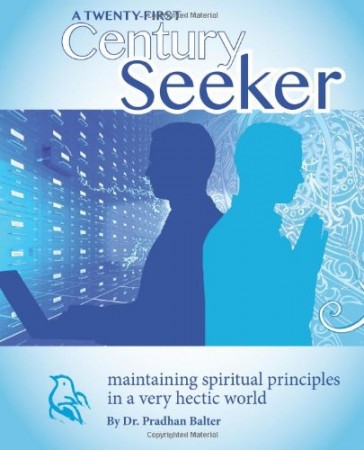 It has been said, and rightly, that we cannot experience meditation by reading about meditation. The only way we can experience meditation is by meditating.
It has been said, and rightly, that we cannot experience meditation by reading about meditation. The only way we can experience meditation is by meditating.
“Wonderful,” you might reply, “but I don’t know how to meditate! What can I do?”
Cheer up, my friend. Dr. Pradhan Balter has written a first-rate book that will guide you in learning how to meditate, so that pretty soon, with practice, you will be able to do it yourself. The author has been a student of spiritual Teacher Sri Chinmoy for over forty years, but, as he says, it is not a book about “Chinmoy-ism;” also, the author has taught classes on meditation for over thirty-five years, so he is able to introduce intriguing questions and insights offered by his students over the years.
The book begins with a very sensible discussion of reasons for wanting to meditate, going all the way from the popular “stress reduction” to the wish for deep spiritual growth, giving practical examples of the ideas that are mentioned as well as valuable, easily-practiced concentration techniques. Dr. Balter then proceeds to the “ABCs of meditation,” where he adds an item that he himself has developed, “inner diligence,” to the usual recommendations about posture, breath and quieting the mind.
A chapter entitled, “Just What Did Those Teachers Say,” addresses the real likelihood that we human beings were not born primarily to live in the body, but rather to experience our souls. (I have put this concept in a rather pedantic manner, but Pradhan Balter is much more down-to-earth, as well as much more revealing, in his presentation.) This discussion is followed by a very sound presentation of the lofty concept, “consciousness.” Here several different metaphors are explored, to help us understand what the idea is really about and why it’s worthwhile for us to try to understand it better.
Following this is a chapter on the five “sheaths” of the human being: the body, the vital, the mind, the heart and the soul. The presentation is quite illuminating, for example, by helping us to understand the common experience of: “I feel like….but I know I shouldn’t.” Besides, unlike Freud’s classification of the human being into the id, the ego and the super-ego, this one helps us to get on good terms with the higher parts of our nature. Later chapters deal with other advanced subjects, like how we can expand our meditative consciousness so that it is expressed throughout our daily activities and “spiritual transformation.”
Each chapter introduces at least one meditation approach, so that, as they go along, readers will have the opportunity to sample quite a few different approaches and find out which ones work best for themselves. Another feature of every chapter is aphorisms on the subject at hand; these are often both wise and compelling.
The book is written in a very informal style which is extremely enjoyable; it also belies the depths of many of its teachings. When the author asks a question, he sometimes inserts a blank page, so that readers will have to think about the answer before they continue to read. He also gives just enough of his own life-story to help us to feel connected to him and to understand where he may be coming from in some of his examples.
As I guess you’ve probably figured out by now, I think this is a wonderful book! It is 216 paperback pages long, and is available on Amazon for USD 16.
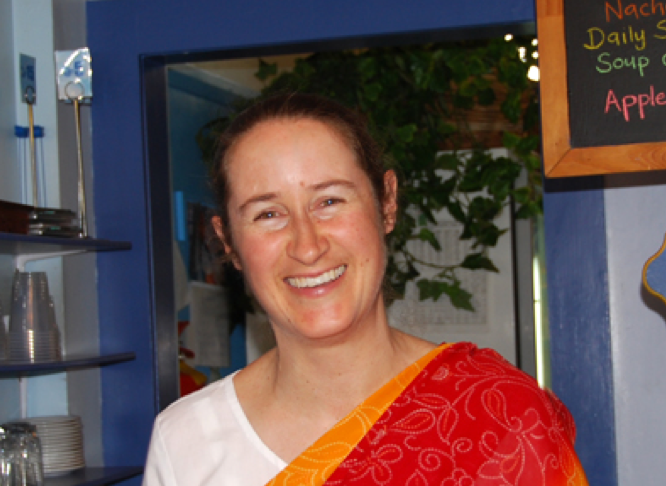
Thoughts on real happiness…
Toshala Elliott manages The Blue-Bird Cafe, one of Auckland’s most popular vegetarian establishments.
What does happiness mean to you?
With the aid of meditation and sincere effort I discovered that happiness is more than just a few moments of joy bubbling up inside you, or an ephemeral pleasure because you are doing very well in your worldly endeavours – it is a lasting peace and fullness that abides inside you that the happenings of life going on around you cannot take away. At least not for long.
What have you learned about happiness?
That it cannot be taken for granted! Imagine this: you’ve got it made – you have a happy life, you are loved, working hard and achieving levels of success beyond your and your family’s imagination. You’ve got it down and the world is your oyster. You are happy! Then… bang, pow – it’s over. Over a short period of time your life circumstances change completely… and you find yourself… really not happy.
This is a biggy that has been faced by myself and a few billion other people. A stop-in-your-tracks-and-sincerely-look-at-what-life-is sort of thing. While it is unfortunate that one sometimes has to go through a huge (at least for one’s proportionate capacity) crisis before stopping and taking stock, hindsight reveals (in my case at least) that the brakes were destined to come on to give the truth a bit of a chance.
Luckily I was fortunate enough at that time to meet up with the Sri Chinmoy Centre. I say luckily but it was far less serendipitous than that suggests because my circumstances were the harbinger for change, for which I was finally ready. Sri Chinmoy’s philosophy was exactly what I was looking for and precisely what I needed. What did I receive? Tools for life and a change of perspective. Therein I discovered a knack of sifting the real from the unreal.
Now – years later – I am grateful for the experiences I have had, despite being very hard at the time, that have brought me to my current state of understanding. One day I will look back on my life experiences and laugh heartily. (Not yet though. One day I will.)
Tell us about your café!
I became a vegetarian in 1991, cold turkey, just like that. And to my surprise I never looked back! I gave it a go to see how long I would last before cravings for meat overtook me – arising from some mad dietary imbalance – however none have yet, and it has been more than 20 years since I started.

Happy customers at the Blue Bird café
One of the theme goals at The Blue Bird vegetarian café is to provide a tranquil oasis for our customers. Over the years we have changed and evolved – as has our menu! However two things have remained constant: we all love spirituality and are avid foodies!
At the cafe, I occasionally offer general introductory workshops in vegetarianism to those who are either interested in becoming vegetarian (for whatever reasons – be it for better health or global awareness or humanitarian reasons or spiritual or because the food is tasty, or anything), or who are just interested in what we eat and would like to try some.
More about The Blue-Bird here…

